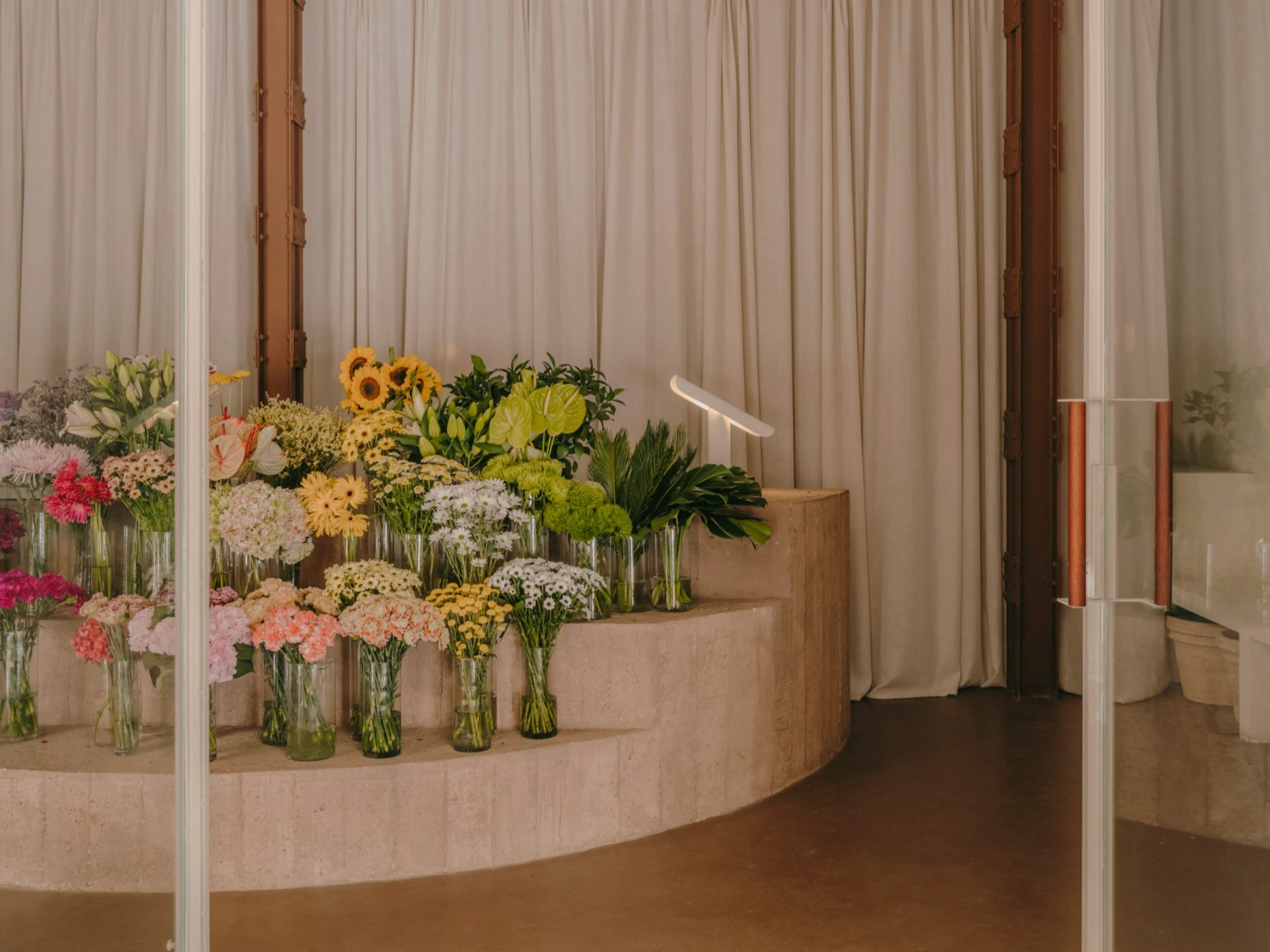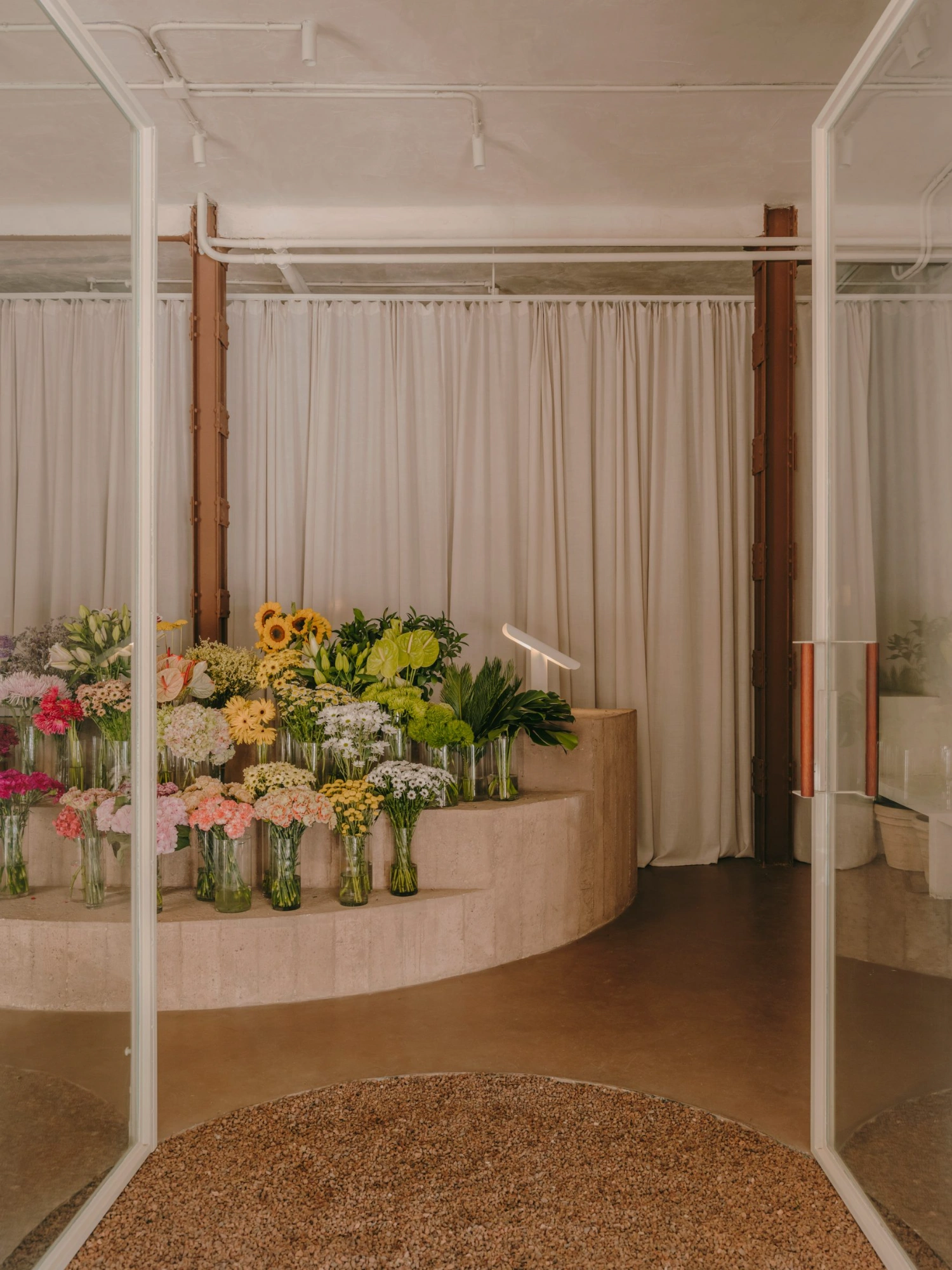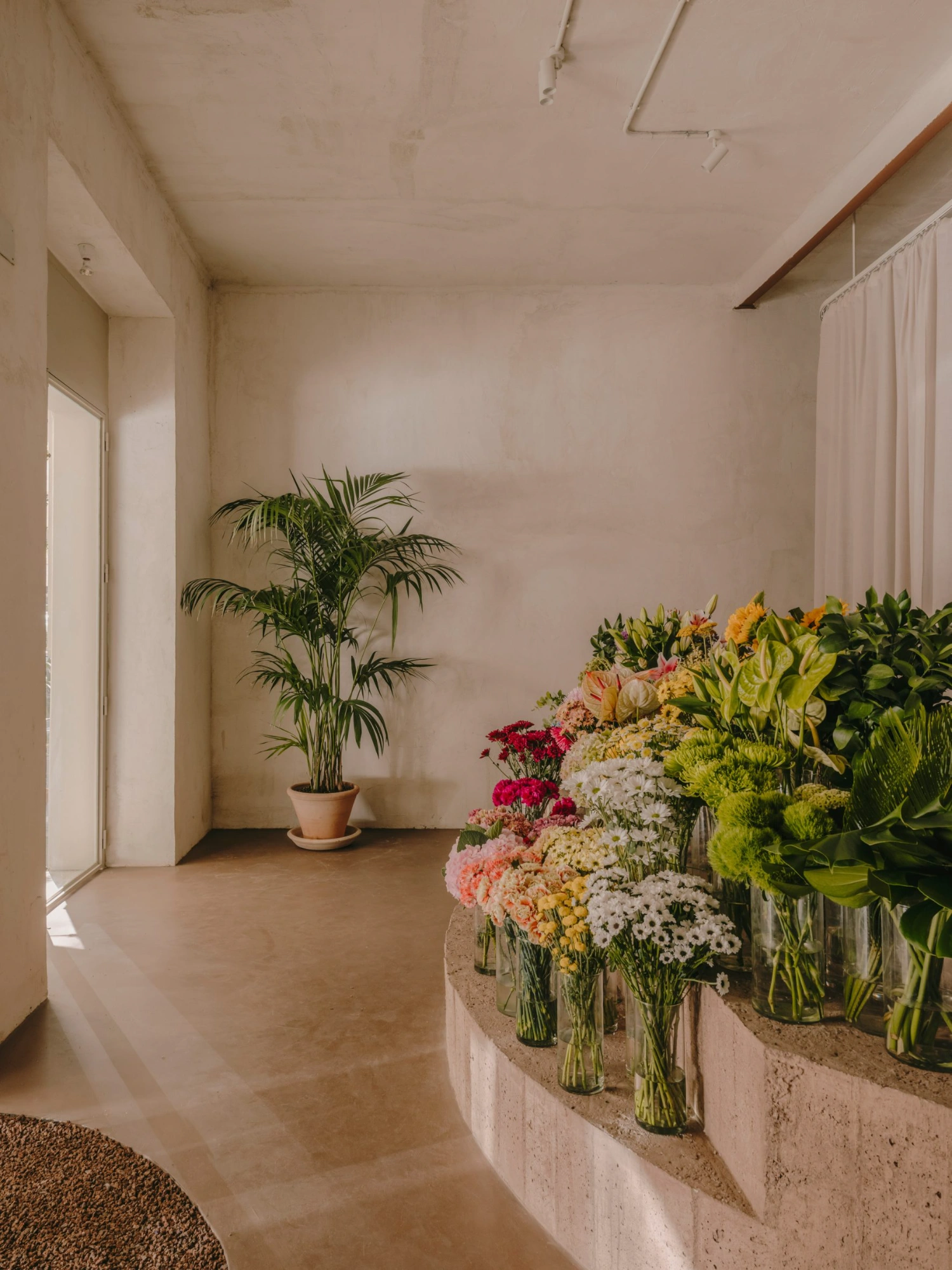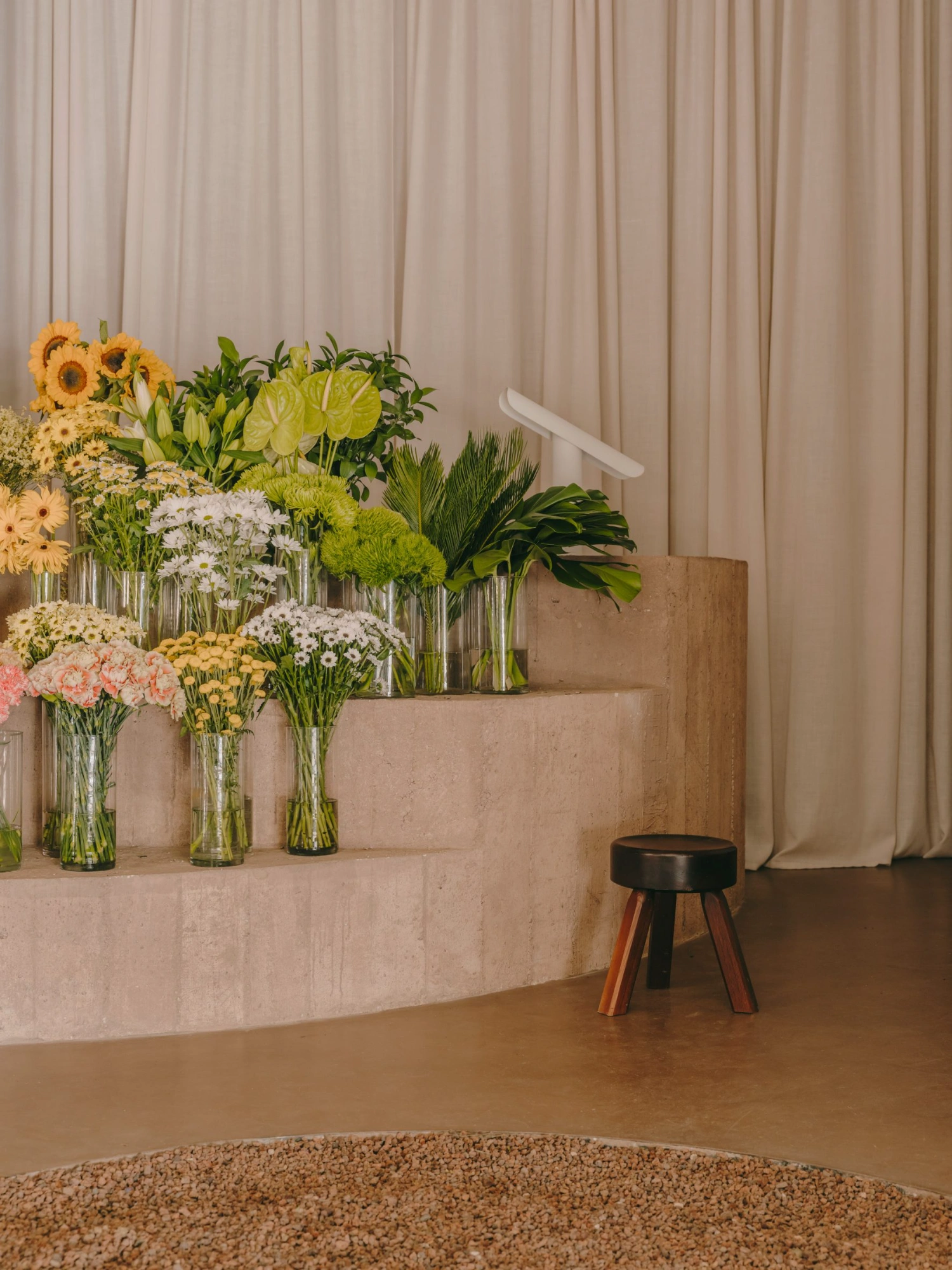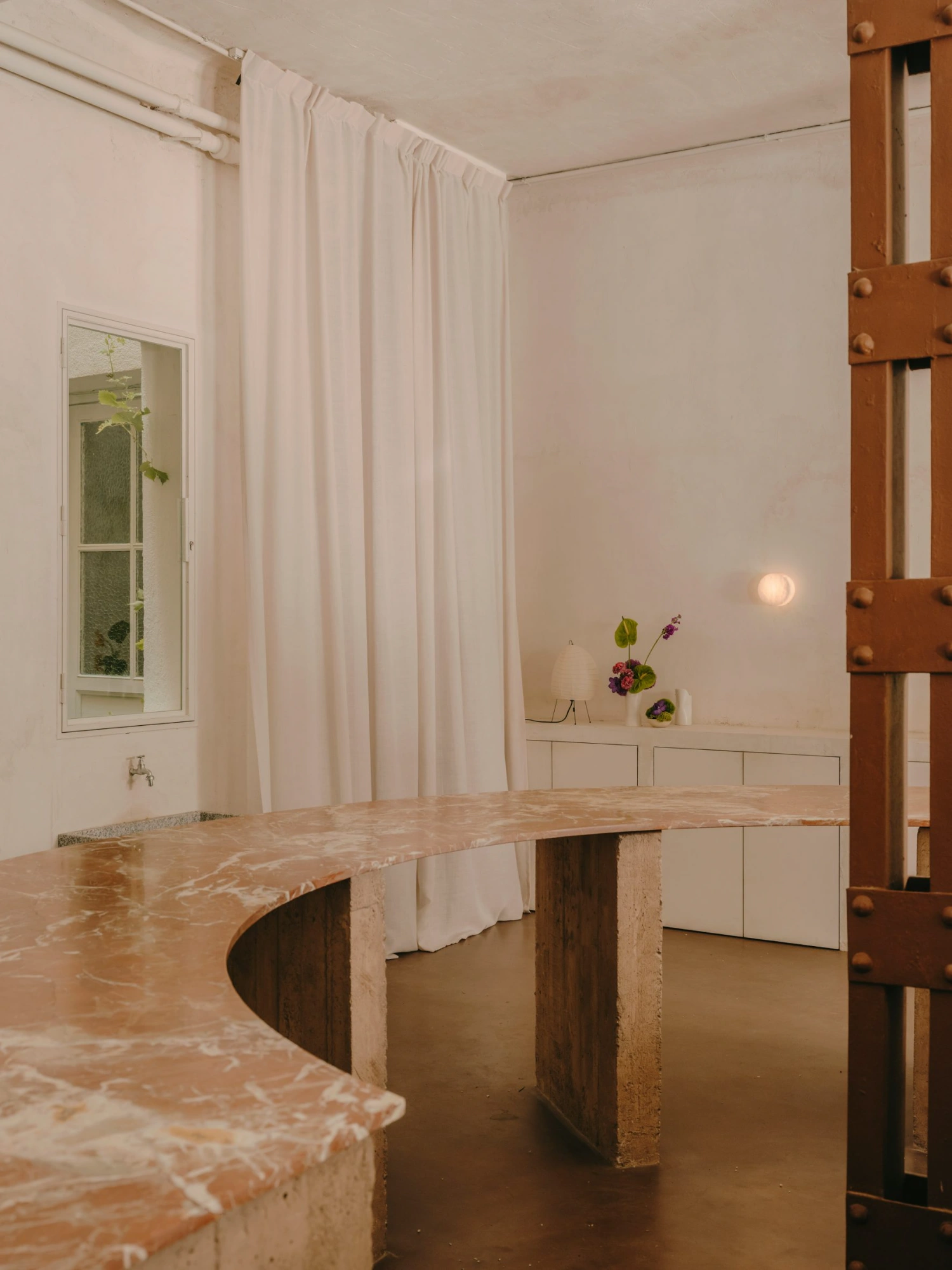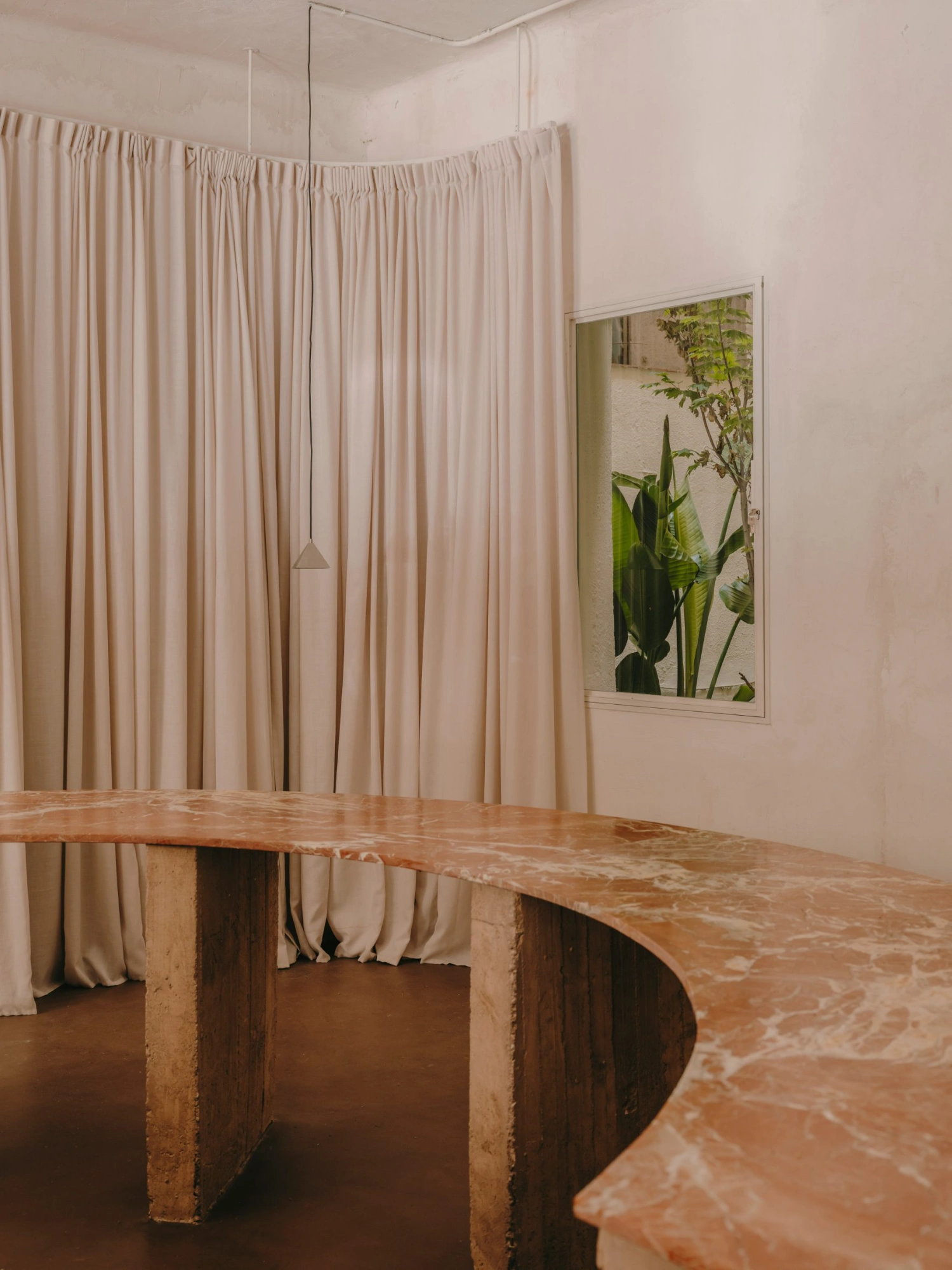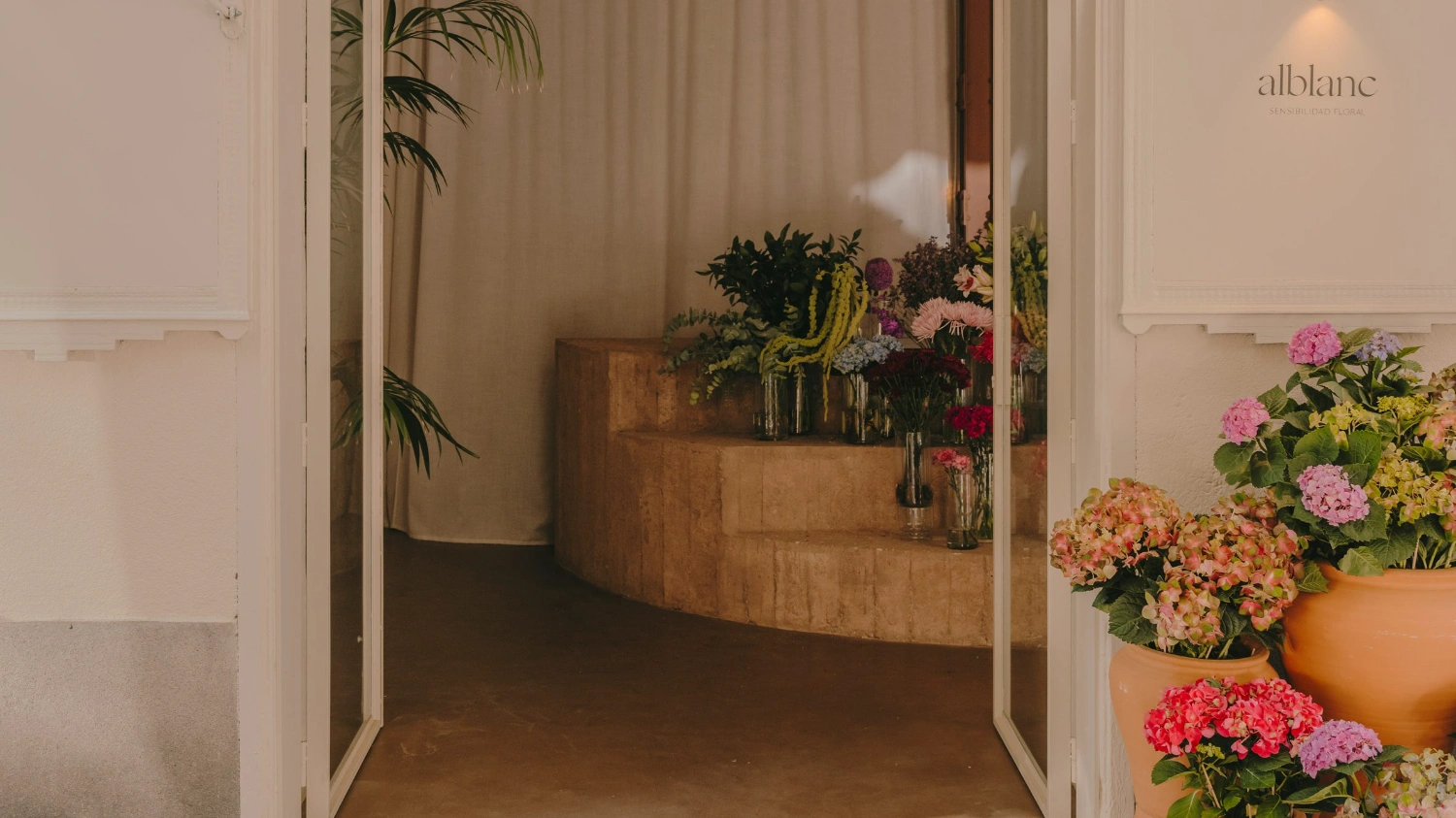In Madrid’s Justicia neighbourhood, Plantea Estudio has transformed an empty storefront into Alblanc Atelier — a flower shop that reads like a contemporary garden pavilion.
Rather than segmenting the interior with partitions, the architects allowed a single gesture to define the space: a circular, earth-toned concrete platform rising at its centre. This sculptural element functions simultaneously as display, workspace, and conceptual heart, grounding the room in a calm material gravity that heightens the transient life of flowers.
The stepped concrete form, tinted to resemble soil, evokes the sensation of blooms sprouting directly from the ground. Facing the street, its three-tiered composition stages the flowers as living architecture, extending outward like an urban parterre. The choice of material—dense, tactile, and raw—creates a powerful contrast with the botanical delicacy that animates its surface. Each cylindrical vase, placed along the curves, punctuates the heavy structure with ephemeral colour and scent.
A floor-to-ceiling linen curtain softens the geometry, bisecting the central circle into a public display and a more private workshop zone. Behind it, a C-shaped red marble worktop, supported by matching concrete legs, anchors the florist’s daily rituals. The marble, a familiar presence in Madrid’s traditional doorways, becomes here a metaphorical “crystallised earth,” a terrain for craftsmanship and arrangement.
Surrounding walls in sandy pink and soft grey maintain a luminous neutrality, while the layered lighting scheme—Noguchi’s paper lamp, Ferm Living pendants, and gentle wall sconces—adds rhythm and warmth. This orchestration of natural textures and diffused light gives the atelier its dual tone: part theatre, part sanctuary.

